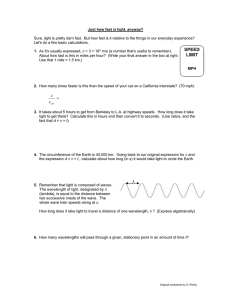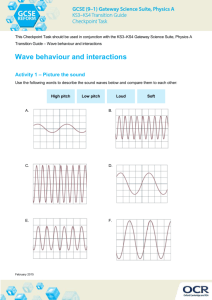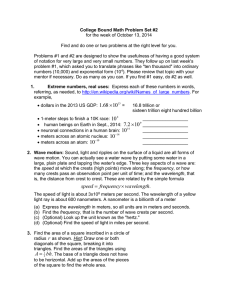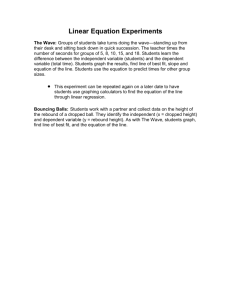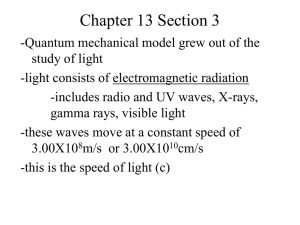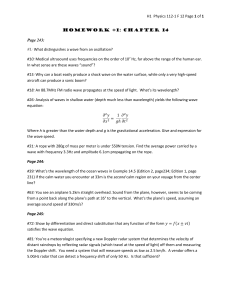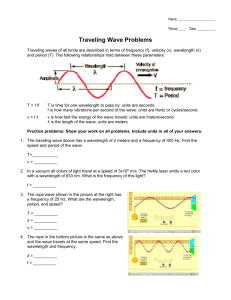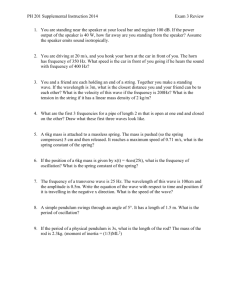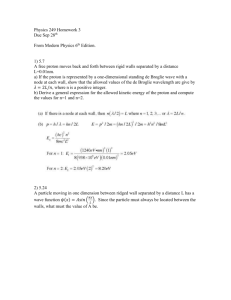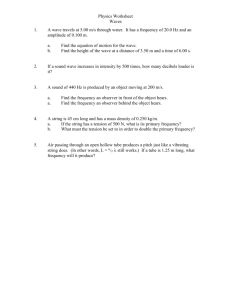Vibrations & Waves Formula Questions
advertisement
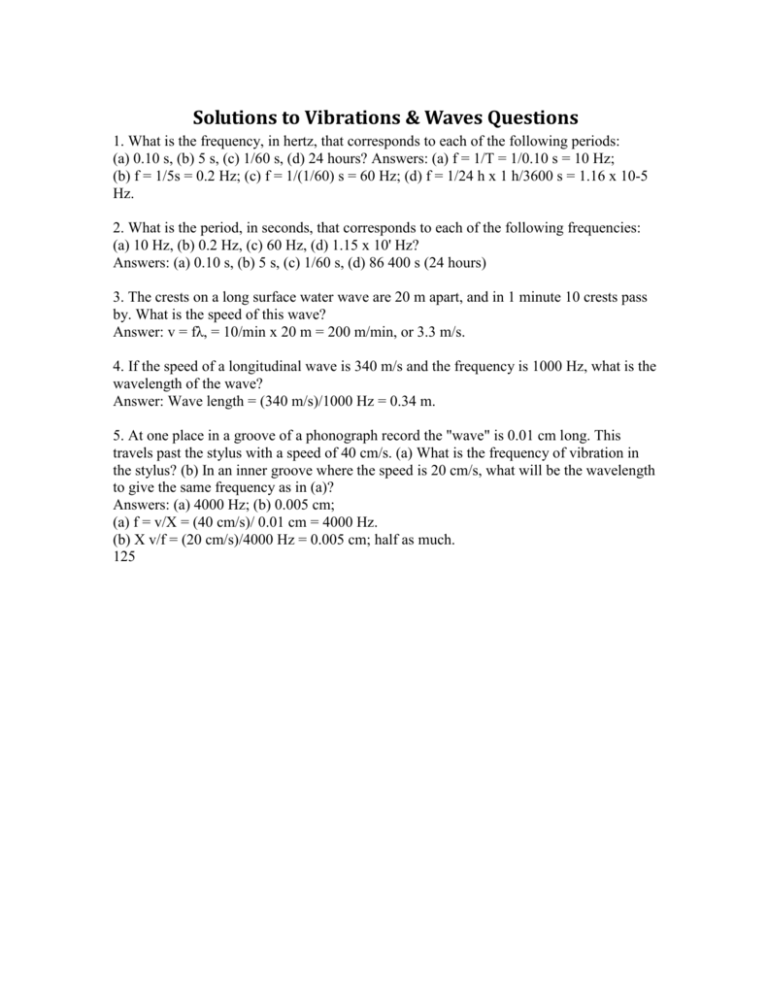
Solutions to Vibrations & Waves Questions 1. What is the frequency, in hertz, that corresponds to each of the following periods: (a) 0.10 s, (b) 5 s, (c) 1/60 s, (d) 24 hours? Answers: (a) f = 1/T = 1/0.10 s = 10 Hz; (b) f = 1/5s = 0.2 Hz; (c) f = 1/(1/60) s = 60 Hz; (d) f = 1/24 h x 1 h/3600 s = 1.16 x 10-5 Hz. 2. What is the period, in seconds, that corresponds to each of the following frequencies: (a) 10 Hz, (b) 0.2 Hz, (c) 60 Hz, (d) 1.15 x 10' Hz? Answers: (a) 0.10 s, (b) 5 s, (c) 1/60 s, (d) 86 400 s (24 hours) 3. The crests on a long surface water wave are 20 m apart, and in 1 minute 10 crests pass by. What is the speed of this wave? Answer: v = fλ, = 10/min x 20 m = 200 m/min, or 3.3 m/s. 4. If the speed of a longitudinal wave is 340 m/s and the frequency is 1000 Hz, what is the wavelength of the wave? Answer: Wave length = (340 m/s)/1000 Hz = 0.34 m. 5. At one place in a groove of a phonograph record the "wave" is 0.01 cm long. This travels past the stylus with a speed of 40 cm/s. (a) What is the frequency of vibration in the stylus? (b) In an inner groove where the speed is 20 cm/s, what will be the wavelength to give the same frequency as in (a)? Answers: (a) 4000 Hz; (b) 0.005 cm; (a) f = v/X = (40 cm/s)/ 0.01 cm = 4000 Hz. (b) X v/f = (20 cm/s)/4000 Hz = 0.005 cm; half as much. 125
